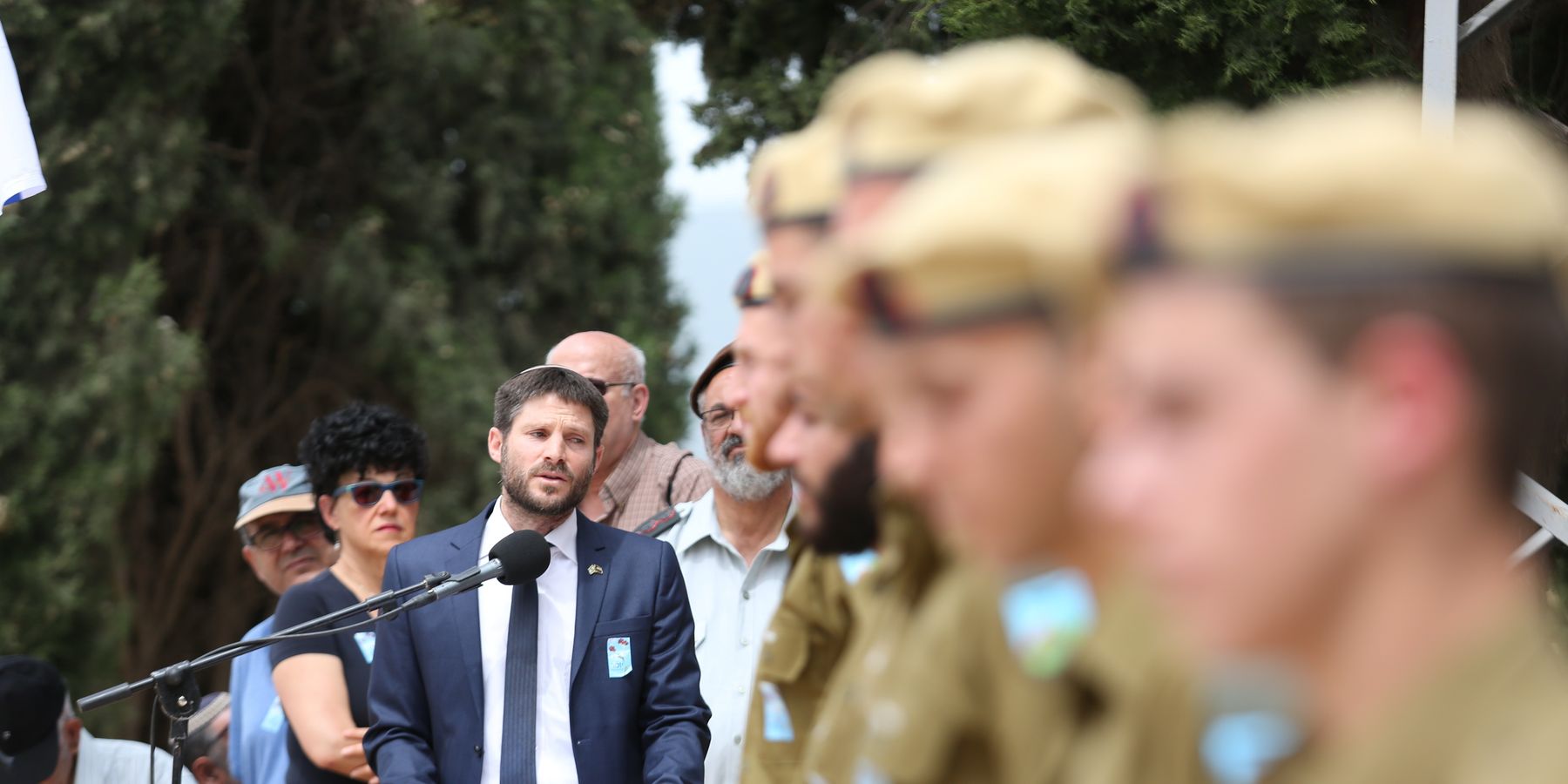According to reports, far-right Israeli Finance Minister Bezalel Smotrich said on Sunday that “the goal for 2025 is to demolish more than the Palestinians build in the West Bank.” This comes as the Israeli government is reportedly building almost 1,000 additional housing units in the Efrat settlement close to Jerusalem.
The additional units built for settlers in Efrat would increase the settlement’s size by 40% and block development in the Palestinian city of Bethlehem. The roughly 100 existing settlements in the West Bank host around 500,000 Israeli settlers and are considered illegal under international law.
Sunday’s comments from Smotrich reflect his longstanding hopes for Israeli absorption of the West Bank and the nixing of a two-state solution. He published a lengthy plan in 2017 in this regard entitled “One Hope.”
“We need to and can go back to the post-1948 days, regarding both Israeli Arabs and the Arabs of Judea and Samaria,” he outlined in the plan, the first phase of which is called “Victory Through Settlement.” This, he explained, ”will be realized via a political-legal act of imposing sovereignty on all Judea and Samaria, and with concurrent acts of settlement: the establishment of cities and towns, the laying down of infrastructure as is customary in ‘little’ Israel and the encouragement of tens and hundreds of thousands of residents to come live in Judea and Samaria. In this way, we will be able to create a clear and irreversible reality on the ground.”
"The Arabs of Judea and Samaria will be able to conduct their daily life in freedom and peace, but not to vote for the Israeli Knesset at the first stage” as a way to “preserve the Jewish majority in decision-making in the state of Israel.” He vehemently denies that this system resembles apartheid.
Israel has been carrying out military operations in the West Bank’s north for months now, displacing upwards of 40,000 Palestinians, according to experts, which exceeds displacement levels in 1967 after the Six-Day War when Israel annexed the West Bank from Jordan. The United Nations Relief and Works Agency (UNRWA) reports that the IDF has killed at least 876 people in the West Bank and East Jerusalem since Oct. 7, 2023.
“The purpose of the operations is to prevent terror from places a few kilometers from Jewish communities and to prevent a repeat of Oct.7,” said an IDF spokesperson, but the actions have come at a significant cost to civilians. Ramy Abu Siriye, a local barber who was displaced from Tulkarem in January, lamented, “The soldiers are taking over one area after another, destroying homes, infrastructure, and roads.”
Annelle Sheline, Quincy Institute Middle East fellow, said everyone loses with annexation: Palestinians, Israelis, the greater region. “The Israeli government continues to undermine the long-term security of Israeli citizens, which can only truly be achieved alongside security for Palestinians.”
Further normalization between Israel and its Arab neighbors may also be in jeopardy if the West Bank is de facto annexed, threatening the prospect of a Palestinian state. Earlier in February, when President Trump floated forcing Palestinians out of the Gaza Strip, the Saudi Arabian foreign ministry confirmed that further normalization with Israel wouldn’t happen until the establishment of a Palestinian state and that their position was “firm and unwavering.”
The State Department has not yet commented on Smotrich’s remarks or the new settlements in the West Bank.
- US, Israeli attacks on UNRWA push agency toward collapse ›
- Jordan braces as Israeli annexation of West Bank looms ›




 (Shana Marshall)
(Shana Marshall)











